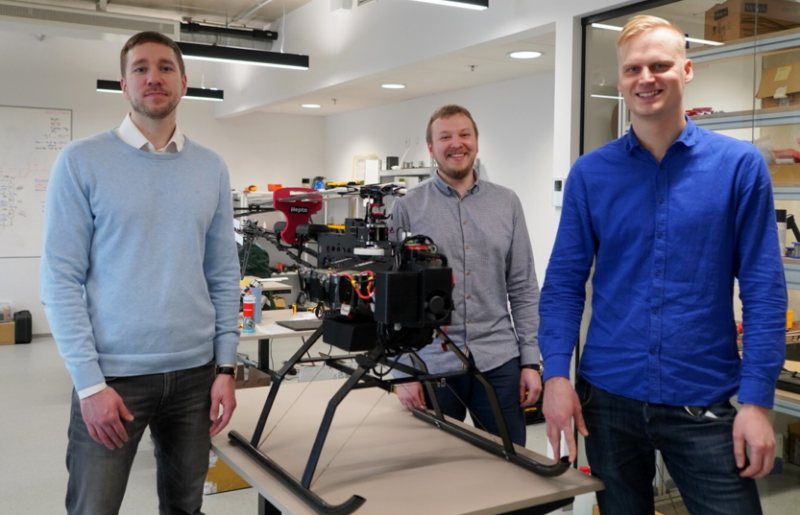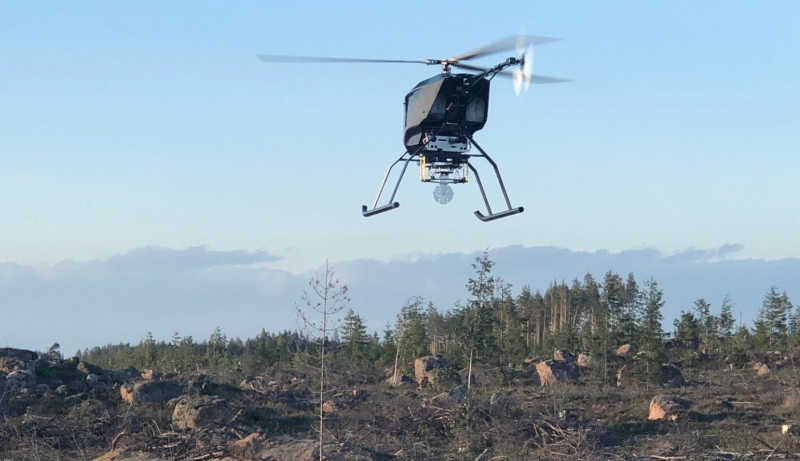, a Talinn, Estonia-based provider of end-to-end inspection and analysis tools for energy asset managers, announced completing a funding round of €2 million ($2.4M).
The money was raised from investors led by SpeedUp Group and EIT InnoEnergy, along with previous investors, Contrarian Ventures, Expansion Capital, Thorgate Ventures, and Markku Jääskelainen.
Hepta Airborne, founded in 2017 by CEO Henri Klemmer, automates the analysis of power lines by utilizing drones, helicopters, satellites, and big data analysis.
The company offers a full service, from gathering the data to analyzing it. All sensor data is delivered in a single software environment built by Hepta Airborne, called ‘uBird’. The uBird software can automatically detect defects in power lines and other infrastructure from sensor data.
Hepta’s CEO Henri Klemmer has said that their solutions increase the accuracy of defect detection by more than 33% compared to conventional methods.
“This means that our software discovers more faults. The “uBird” software turns more than 250 km of power line data into actionable end-results in 5 minutes. It takes a single engineer 30 days to do the same, manually. On occasion, we have reached 400% increased accuracy, finding hundreds of faults more per single power line than conventional methods,” clarified Henri.
Power outages are also a problem to which energy companies are trying to find a faster and more efficient solution. Hepta drones can fly in a strong wind – 20 meters per second and stronger. Hepta’s drones have two particular strengths, their wind resistance is strong, and they can fly up to three hours at a time with the necessary payload.
The company also has long-term plans for the creation of digital twins for a variety of infrastructures.
“In 2021, we will include humidity, soil, and weather information to our algorithms to simulate real-life conditions in the digital environment. We will predict future scenarios and potential accidents,” said Klemmer. “Our journey will lead to the creation of digital twins in multiple industries – power lines, gas pipelines, railways, the telecommunication sector, and so forth. Imagine a world where you obtain an instant assessment of the physical condition of every three-dimensional asset around you.”
Bartek Gola, a Managing Partner at SpeedUp Energy Innovation, commented that SpeedUp foresees an increase in the demand for the automation of power line inspection in the upcoming years; and Hepta plans to continue to be the leader of this rising market.
“When people talk about ‘energy transition,’ one tends to think that it mainly applies to renewable energy. That is, of course, correct but not comprehensive enough. Despite new production methods, there is a vast digitalization in other areas of the energy business. Globally, there are 100 million kilometers of power lines, and 97% of them are being inspected manually! There is space for digital disruption, and this is the area of Hepta’s expertise. They can automate the process of power line inspections and data analysis based on machine learning,” said Gola.
Hepta anticipates that the funding also should enable it to grow its presence in other European countries.
Source: Press Release


